The average cost of Lung Cancer Treatment in Switzerland starts from CHF 21500 (USD 25000)
Cancer is a medical condition or disease where the cells in the body show rapid and uncontrollable growth.
Lung cancer is when cancerous cells in the lungs grow rapidly without any control. With time, it can spread to the nodes of lymph and other body parts.. Lung cancer may also occur if cancer spreads from other body parts to the lungs.
There are two types of lung cancer:
Both have different impacts and different methods for lung cancer treatment. Usually, Non-Small Cell cancer patients are higher and common than Small Cell cancer.
If you find any of the symptoms such as
Then, you should definitely visit your doctor for the complete check-up. Also, it is very important that all of your other organs are working fine for successful lung cancer treatment.
Every cancer treatment has different procedures and costs for the treatment depending upon the type and place, but there are three major factors that affect the hospitalization cost of Lung cancer treatment of any patients, they are:
| Country | Cost | Local_currency |
|---|---|---|
| Greece | USD 25000 | Greece 23000 |
| India | USD 8500 | India 706775 |
| Israel | USD 20000 | Israel 76000 |
| Lebanon | USD 25000 | Lebanon 375138750 |
| Malaysia | USD 13800 | Malaysia 64998 |
| South Korea | USD 13000 | South Korea 17454970 |
| Spain | USD 32000 | Spain 29440 |
| Switzerland | USD 25000 | Switzerland 21500 |
| Thailand | USD 28000 | Thailand 998200 |
| Tunisia | USD 25000 | Tunisia 77750 |
| Turkey | USD 10770 | Turkey 324608 |
| United Arab Emirates | USD 25000 | United Arab Emirates 91750 |
| United Kingdom | USD 25000 | United Kingdom 19750 |
Treatment cost
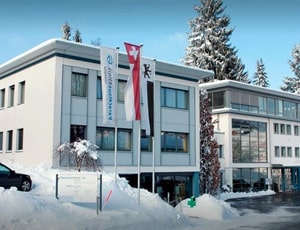
Apart from in-detail treatment procedures available, Paracelsus Clinic located in Lustmuhle, Switzerland has a wide variety of facilities available for International Patients. Some of the facilities which are provided by them are Accommodation, Airport Transfer, Choice of Meals, Interpreter, SIM, TV inside room. Also listed below are some of the most prominent infrastructural details:

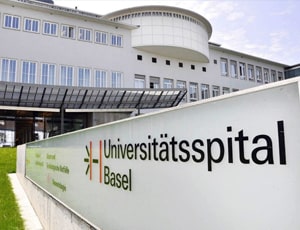
University Hospital located in Basel, Switzerland is accredited by ISO. Also listed below are some of the most prominent infrastructural details:
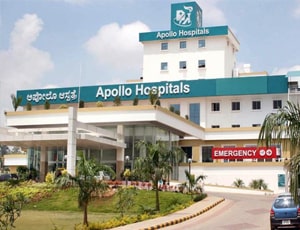
Types of Lung Cancer Treatment in Apollo Hospitals Bannerghatta and its associated cost
| Treatment Option | Approximate Cost Range (USD) | Approximate Cost Range (INR) |
|---|---|---|
| Lung Cancer Treatment (Overall) | 6707 - 8964 | 557863 - 727658 |
| Surgery | 4497 - 7753 | 366249 - 636940 |
| Lobectomy | 1696 - 6660 | 135406 - 554600 |
| Pneumonectomy | 2283 - 9097 | 186044 - 736683 |
| Segmentectomy | 1700 - 5739 | 137987 - 456963 |
| Chemotherapy | 911 - 2220 | 74447 - 184294 |
| Targeted Therapy | 1146 - 3408 | 93264 - 274316 |
| Immunotherapy | 1678 - 3926 | 138390 - 327400 |
| Radiation Therapy | 2261 - 5117 | 183945 - 424093 |
| Palliative Care | 568 - 1663 | 45246 - 139341 |
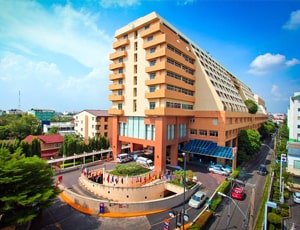
Types of Lung Cancer Treatment in Vejthani Hospital and its associated cost
| Treatment Option | Approximate Cost Range (USD) | Approximate Cost Range (THB) |
|---|---|---|
| Lung Cancer Treatment (Overall) | 27948 - 37927 | 1003106 - 1390093 |
| Surgery | 11119 - 15198 | 409715 - 534691 |
| Lobectomy | 12026 - 13389 | 442735 - 484684 |
| Pneumonectomy | 9438 - 15857 | 343561 - 574760 |
| Segmentectomy | 10121 - 13326 | 366835 - 470946 |
| Chemotherapy | 2641 - 6706 | 95694 - 237318 |
| Targeted Therapy | 3113 - 8233 | 110058 - 293285 |
| Immunotherapy | 7741 - 11351 | 286946 - 404471 |
| Radiation Therapy | 5489 - 12361 | 189184 - 434280 |
| Palliative Care | 2210 - 5458 | 80781 - 195031 |
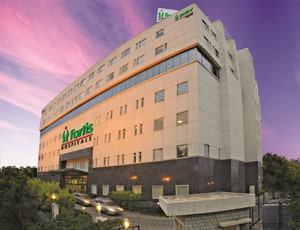
Types of Lung Cancer Treatment in Fortis Hospital and its associated cost
| Treatment Option | Approximate Cost Range (USD) | Approximate Cost Range (INR) |
|---|---|---|
| Lung Cancer Treatment (Overall) | 6067 - 8132 | 499340 - 668760 |
| Surgery | 4067 - 7076 | 333307 - 579931 |
| Lobectomy | 1530 - 6072 | 124989 - 498443 |
| Pneumonectomy | 2040 - 8108 | 165741 - 667737 |
| Segmentectomy | 1530 - 5096 | 125436 - 417622 |
| Chemotherapy | 812 - 2031 | 66290 - 166424 |
| Targeted Therapy | 1012 - 3036 | 83341 - 250527 |
| Immunotherapy | 1519 - 3542 | 124709 - 291913 |
| Radiation Therapy | 2023 - 4563 | 165869 - 376216 |
| Palliative Care | 507 - 1525 | 41618 - 124455 |
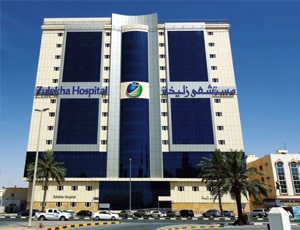
Types of Lung Cancer Treatment in Zulekha Hospital Sharjah and its associated cost
| Treatment Option | Approximate Cost Range (USD) | Approximate Cost Range (AED) |
|---|---|---|
| Lung Cancer Treatment (Overall) | 28278 - 33324 | 101191 - 125617 |
| Surgery | 11039 - 17031 | 40575 - 62789 |
| Lobectomy | 9633 - 13563 | 35340 - 48627 |
| Pneumonectomy | 9979 - 15627 | 37279 - 57284 |
| Segmentectomy | 8271 - 13772 | 30629 - 49767 |
| Chemotherapy | 2837 - 6737 | 10261 - 24753 |
| Targeted Therapy | 2238 - 9007 | 8423 - 33195 |
| Immunotherapy | 2763 - 11339 | 10275 - 41939 |
| Radiation Therapy | 3852 - 12648 | 14316 - 45177 |
| Palliative Care | 1128 - 4402 | 4075 - 16259 |
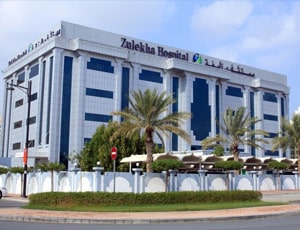
Types of Lung Cancer Treatment in Zulekha Hospital Dubai and its associated cost
| Treatment Option | Approximate Cost Range (USD) | Approximate Cost Range (AED) |
|---|---|---|
| Lung Cancer Treatment (Overall) | 27916 - 34061 | 100972 - 123126 |
| Surgery | 11033 - 16538 | 41935 - 61980 |
| Lobectomy | 9462 - 13701 | 34706 - 50262 |
| Pneumonectomy | 9982 - 15808 | 36522 - 58151 |
| Segmentectomy | 8303 - 13588 | 31075 - 48944 |
| Chemotherapy | 2826 - 6781 | 10308 - 25086 |
| Targeted Therapy | 2261 - 8921 | 8168 - 33681 |
| Immunotherapy | 2815 - 11148 | 10232 - 40984 |
| Radiation Therapy | 3971 - 12509 | 14325 - 46264 |
| Palliative Care | 1114 - 4576 | 4134 - 16330 |
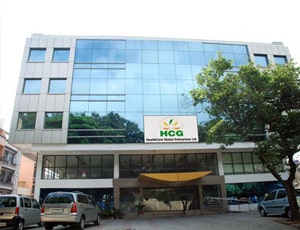
Types of Lung Cancer Treatment in HCG Kalinga Rao Road and its associated cost
| Treatment Option | Approximate Cost Range (USD) | Approximate Cost Range (INR) |
|---|---|---|
| Lung Cancer Treatment (Overall) | 6065 - 8097 | 499290 - 665468 |
| Surgery | 4065 - 7138 | 332609 - 582149 |
| Lobectomy | 1517 - 6091 | 124257 - 499223 |
| Pneumonectomy | 2026 - 8152 | 166786 - 668586 |
| Segmentectomy | 1524 - 5087 | 125335 - 417100 |
| Chemotherapy | 811 - 2029 | 66679 - 166941 |
| Targeted Therapy | 1013 - 3048 | 83278 - 248595 |
| Immunotherapy | 1523 - 3554 | 124835 - 290202 |
| Radiation Therapy | 2038 - 4557 | 166164 - 374895 |
| Palliative Care | 506 - 1515 | 41555 - 125286 |

Types of Lung Cancer Treatment in Sarvodaya Hospital and Research Centre and its associated cost
| Treatment Option | Approximate Cost Range (USD) | Approximate Cost Range (INR) |
|---|---|---|
| Lung Cancer Treatment (Overall) | 6094 - 8106 | 501189 - 667725 |
| Surgery | 4066 - 7104 | 332184 - 581279 |
| Lobectomy | 1526 - 6065 | 124391 - 500031 |
| Pneumonectomy | 2023 - 8124 | 165903 - 668777 |
| Segmentectomy | 1515 - 5083 | 125021 - 418010 |
| Chemotherapy | 815 - 2036 | 66688 - 166423 |
| Targeted Therapy | 1013 - 3043 | 83570 - 250767 |
| Immunotherapy | 1518 - 3567 | 124461 - 292533 |
| Radiation Therapy | 2028 - 4587 | 165933 - 373096 |
| Palliative Care | 505 - 1529 | 41506 - 124884 |
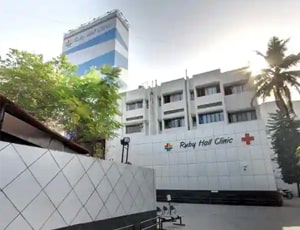
Types of Lung Cancer Treatment in Ruby Hall Clinic and its associated cost
| Treatment Option | Approximate Cost Range (USD) | Approximate Cost Range (INR) |
|---|---|---|
| Lung Cancer Treatment (Overall) | 5680 - 7559 | 463075 - 608551 |
| Surgery | 3790 - 6578 | 304372 - 536188 |
| Lobectomy | 1382 - 5531 | 114840 - 454780 |
| Pneumonectomy | 1872 - 7371 | 152068 - 614857 |
| Segmentectomy | 1399 - 4645 | 115854 - 387597 |
| Chemotherapy | 751 - 1845 | 60424 - 154467 |
| Targeted Therapy | 948 - 2806 | 77169 - 229357 |
| Immunotherapy | 1381 - 3300 | 116258 - 268816 |
| Radiation Therapy | 1857 - 4174 | 154261 - 349786 |
| Palliative Care | 470 - 1396 | 38635 - 115143 |
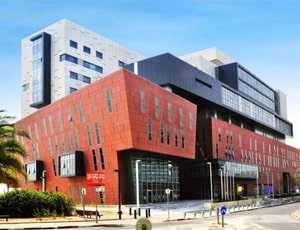
Assuta Hospital located in Tel-Aviv, Israel is accredited by JCI. Also listed below are some of the most prominent infrastructural details:
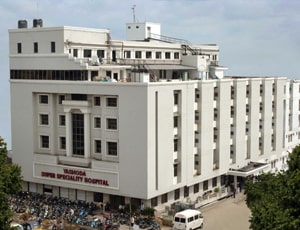
Types of Lung Cancer Treatment in Yashoda Hospital, Malakpet and its associated cost
| Treatment Option | Approximate Cost Range (USD) | Approximate Cost Range (INR) |
|---|---|---|
| Lung Cancer Treatment (Overall) | 6088 - 8145 | 499546 - 665460 |
| Surgery | 4073 - 7104 | 333389 - 583820 |
| Lobectomy | 1516 - 6097 | 125034 - 498966 |
| Pneumonectomy | 2033 - 8158 | 165734 - 663874 |
| Segmentectomy | 1521 - 5085 | 124516 - 414728 |
| Chemotherapy | 808 - 2025 | 66463 - 165991 |
| Targeted Therapy | 1019 - 3051 | 83143 - 249949 |
| Immunotherapy | 1522 - 3563 | 124910 - 292082 |
| Radiation Therapy | 2036 - 4550 | 165981 - 372883 |
| Palliative Care | 507 - 1517 | 41581 - 124264 |
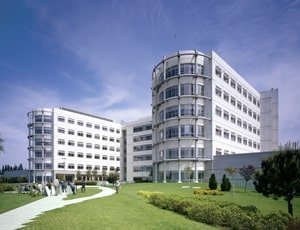
Types of Lung Cancer Treatment in Anadolu Medical Center and its associated cost
| Treatment Option | Approximate Cost Range (USD) | Approximate Cost Range (TRY) |
|---|---|---|
| Lung Cancer Treatment (Overall) | 11435 - 13231 | 340690 - 415060 |
| Surgery | 6735 - 10236 | 204868 - 311134 |
| Lobectomy | 3873 - 9150 | 120819 - 267299 |
| Pneumonectomy | 4457 - 11438 | 133597 - 333431 |
| Segmentectomy | 3314 - 8044 | 101318 - 234657 |
| Chemotherapy | 1135 - 2831 | 34331 - 86468 |
| Targeted Therapy | 1656 - 3923 | 51343 - 117367 |
| Immunotherapy | 2229 - 4444 | 67695 - 133933 |
| Radiation Therapy | 2862 - 6108 | 83961 - 187963 |
| Palliative Care | 1107 - 3374 | 33205 - 102572 |
DOCTORS IN 12 SPECIALITIES
FACILITIES & AMENITIES
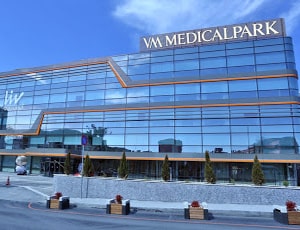
Types of Lung Cancer Treatment in I.A.U VM Medical Park Florya Hospital and its associated cost
| Treatment Option | Approximate Cost Range (USD) | Approximate Cost Range (TRY) |
|---|---|---|
| Lung Cancer Treatment (Overall) | 11099 - 13233 | 336639 - 415889 |
| Surgery | 6879 - 10210 | 206991 - 306108 |
| Lobectomy | 3931 - 9140 | 116877 - 276022 |
| Pneumonectomy | 4522 - 11281 | 134543 - 346336 |
| Segmentectomy | 3437 - 7877 | 102455 - 232433 |
| Chemotherapy | 1140 - 2826 | 33698 - 84031 |
| Targeted Therapy | 1702 - 3932 | 50075 - 116467 |
| Immunotherapy | 2247 - 4416 | 66682 - 135514 |
| Radiation Therapy | 2817 - 6275 | 86192 - 185095 |
| Palliative Care | 1136 - 3448 | 33700 - 103622 |
DOCTORS IN 15 SPECIALITIES
FACILITIES & AMENITIES
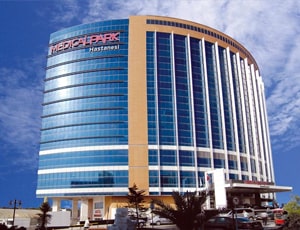
Types of Lung Cancer Treatment in Medical Park Bahcelievler Hospital and its associated cost
| Treatment Option | Approximate Cost Range (USD) | Approximate Cost Range (TRY) |
|---|---|---|
| Lung Cancer Treatment (Overall) | 11134 - 13597 | 346552 - 412287 |
| Surgery | 6625 - 10144 | 202347 - 302527 |
| Lobectomy | 3917 - 9116 | 118734 - 277002 |
| Pneumonectomy | 4464 - 11232 | 133906 - 338801 |
| Segmentectomy | 3382 - 7879 | 99623 - 233238 |
| Chemotherapy | 1121 - 2795 | 33767 - 83513 |
| Targeted Therapy | 1701 - 3854 | 50435 - 119896 |
| Immunotherapy | 2299 - 4577 | 67585 - 134970 |
| Radiation Therapy | 2825 - 6062 | 85023 - 187408 |
| Palliative Care | 1126 - 3448 | 33447 - 103862 |
DOCTORS IN 12 SPECIALITIES
FACILITIES & AMENITIES
Lung cancer is an uncontrolled growth of cells that start off in the lungs. Usually, lung cancer starts in the cells that line the air passages. Instead of developing into healthy lung tissue, the cells divide rapidly and form tumours.
Lung cancer can grow and spread beyond the lung to reach other parts of the body through metastasis. Lung cancers can begin in any part of the lung, but 90 percent of lung cancers begin in the epithelial cells, which are the cells lining the larger and smaller airways also known as bronchi and bronchioles.
This is the reason why lung cancers are sometimes called bronchogenic cancers or bronchogenic carcinomas. Lung cancer is the most common cancer in the world, among both men and women. It is the leading cause of cancer deaths worldwide.
Long-term smoking is the main cause of lung cancer. After smoking, genetic factors and exposure to radon gas, asbestos, second-hand smoke or other forms of air pollution can also increase the risk of lung cancer.
There are two major types of lung cancers, based on the appearance of lung cancer cells under the microscope:
It is necessary to determine the stage of lung cancer by finding out how far cancer has spread, before initiating treatment of lung cancer.
The following are the four lung cancer stages of NSCLC:
After the determination of stage, treatment of lung cancer starts with choosing the best suitable option for the patient. However, there is usually no single treatment for lung cancer. So the patient often receives a combination of therapies and palliative care.
Lung cancer symptoms may vary, depending upon where and how widespread the tumour is. A person with lung cancer may have following lung cancer symptoms:
The treatment of lung cancer may include the following modalities:
Surgery is the best treatment if the lung cancer is in its early stages. In the early stages, it is possible to cure a patient completely by removing the tumor and the nearby lymph nodes. But after cancer has spread, it is nearly impossible to remove all of the cancer cells with the help of surgery.
There are some specific types of surgical procedures for different location and kinds of lung cancers, such as wedge resection of the lung (removal of a portion of one lobe), lobectomy (removal of one lobe), pneumonectomy (removal of an entire lung) and lymphadenectomy (removal of lymph nodes in the region of the lungs). After the surgery, margin tissues are further studied to see if cancer cells are present or not.
Lung cancer surgery is a major surgical procedure that requires hospitalization, general anesthesia, and follow-up care for a few weeks to several months. It also carries side effects like any other surgery, including complications related to bleeding, infection, and general anesthesia.
This treatment uses high-energy X-rays or other types of radiation to destroy or shrink lung cancer tumors. Radiation therapy can be given as a curative therapy, palliative therapy, or as adjuvant therapy combined with surgery or chemotherapy.
Radiation therapy damages the molecules that make up the cancer cells. However, it can damage the normal, healthy tissues. But nowadays improved technology can focus the radiation on precise locations for certain lengths of time, thus reducing the risk of damage to the surrounding healthy tissues.
Chemotherapy is a strong medication treatment, which interferes with the cell division process and damage proteins or DNA to reduce cancer cells. NSCLC and SCLC, both types of lung cancers can be treated with chemotherapy. Chemotherapy might be given in the form of pills, intravenous infusion, or as a combination of both.
However, drugs used in chemotherapy also kill normally dividing cells in the body that may lead to unpleasant side effects. Some of the common side effects of chemotherapy are vomiting, diarrhea, appetite loss, hair loss, fatigue, anemia, infections and more. These side effects may be felt temporarily during treatment, and several drugs exist to help patients cope with the symptoms.
Drugs used in this treatment work by targeting specific abnormalities in the cancer cells. Some of the drugs in this treatment can also strengthen the activity of the immune system against cancer cells. But mostly this treatment only works in people whose cancer cells show certain genetic mutations.
Ask your healthcare adviser for the best multiple options and choose the one that meets your expectations
The average cost of Lung Cancer Treatment in Switzerland starts from USD 25000 OECI, TEMOS are just some of the accreditations which top hospitals in Switzerland hold where a Lung Cancer Treatment is conducted.
The cost of Lung Cancer Treatment in Switzerland may differ from one medical facility to the other. Some of the best hospitals for Lung Cancer Treatment offer a comprehensive package that covers the end-to-end expenses related to investigations and treatment of the patient. Typically, the package cost of Lung Cancer Treatment in Switzerland includes the expenses related to the surgeon's fee, anesthesia, hospital, meals, nursing and ICU stay. There are many things that may increase the cost of Lung Cancer Treatment in Switzerland, including prolonged hospital stay and complications after the procedure.
There are many hospitals across the country that offer Lung Cancer Treatment to international patients. The following are some of the most renowned hospitals for Lung Cancer Treatment in Switzerland:
After discharge from the hospital, the patient has to stay for another 45 days in the country for complete recovery. During this time, the patient undergoes medical tests and consultations. this is to ensure that the treatment was successful and the patient us safe to return.
Apart from the cost of Lung Cancer Treatment, the patient is also required to pay additionally for daily meals and guest house accommodation. The extra charges may start from USD 50 per person.
There are many cities that offer Lung Cancer Treatment in Switzerland, including the following:
After Lung Cancer Treatment, the patient is supposed to stay for about 5 days in the hospital for recovery and monitoring. This phase is important to ensure that the patient is recovering well and is clinically stable. During this time, several tests are performed before the patient is deemed suitable for discharge.
There are more than 2 hospitals that offer Lung Cancer Treatment in Switzerland. These hospitals have proper infrastructure for the treatment of patients who require kidney transplant. Such hospitals follow all legal protocols and guidelines as specified by the local medical affairs body when it comes to the treatment of international patients.
Some of the renowned medical specialists for Lung Cancer Treatment in Switzerland are: